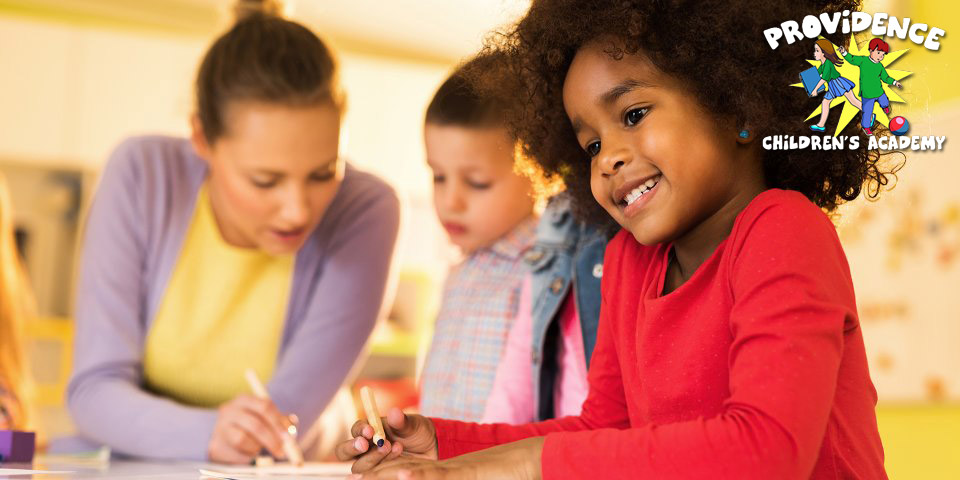
Have you ever wondered why children go to preschool, if all they do is play? It is through play that children are educated, as play is important for childhood development. At preschool, educational activities are implemented with play to tackle all areas of growth, from physical coordination to mental, social and emotional development.
To learn through play effectively interaction is necessary – at Providence Children’s Academy, we use a ‘hands-on’ approach, meaning that active participation takes place. A ‘hands-on’ preschool will provide the facilities for your child to apply skills that he/she learns, thereby making practical use of the knowledge and skills learnt in preschool.
Children are given room to explore on their own (self-directed play), while being guided where necessary (parent-directed play). Having both forms of play will give your child the best of both worlds; a given foundation of skills, as well as the opportunity to build their own!
Preschool’s holistic approach to development is essential here, as it tackles all areas of development, which can be divided into two main groups: physical and mental growth.
-
- Mental development includes emotional and social development, where your child will discover how to interact with others, to understand their emotions and to explore their imagination and creativity.
- Physical development includes fine motor coordination, as well as encourages them to gain muscle tone and keep fit. This is essential for preventing problems such as obesity and restricted mobility/ability. The two go hand in hand, and the more holistically developed a child is, the more confidence he/she becomes.
When children learn through a ‘hands-on’ approach, they actively engage using their five senses of taste, smell, touch, hearing and seeing. The senses all aid each other and using each sense helps to create a well-rounded, all-inclusive learning experience. Activities are designed to engage the senses, for example music and movement encourage children to explore rhythm, sound, and coordination. Some activities target different senses, for example, finger painting relies on touch and sight. Most ‘hands-on’ curriculums include a wide range of activities, as It is important to acknowledge that not all children learn in the same way.
Allowing children to take part in a wide variety of activities will allow them to discover what works for them, as well as discover what doesn’t work for them! Some children discover that they prefer listening, whilst other are more visual learners. Some children do better with tactile experiences, and some don’t. This is why preschools offer a wide variety of activities, as there is no single “correct” method of learning. These multiple methods are great for all, as they are holistic for the individual while catering for the many!
The earlier your child can discover themselves and the way that they learn, the more prepared he/she will be for school. Your child will discover things beyond theory and educational content, such as a discovery of self!
Children get a chance to know themselves; to develop passions and pursue them. This is the foundation of self that will carry your child through the rest of his/her life, and so it is important to have a good one.
“Hands-on” methods are not purely educational, they are also so much fun! Passion and enjoyment is a huge part of education, as it provides the ambition to learn. You want your child to be keen on learning, not to be forced to do so. Enjoyment also aids in confidence, so that your child does not feel limited when moving on to a new school. With a “hands-on” preschool, you can rest easy knowing that they are well prepared for an exciting life ahead. Get ahead and get “hands-on” with Providence Children’s Academy!
